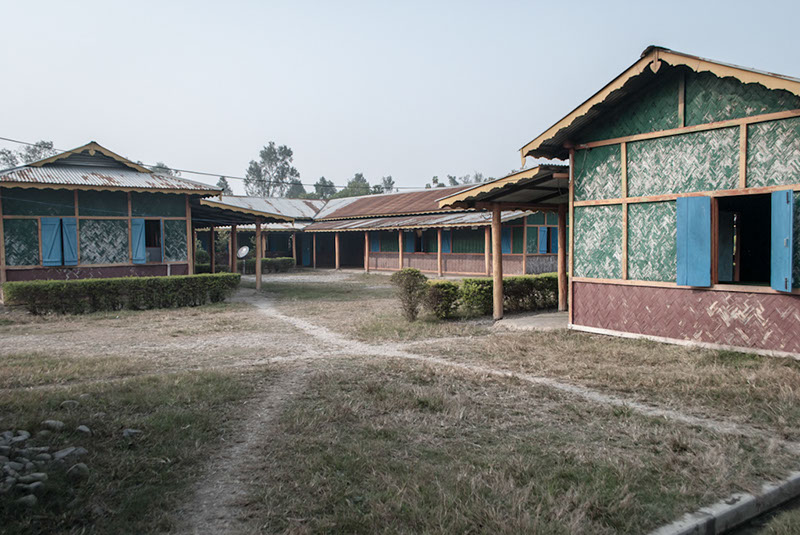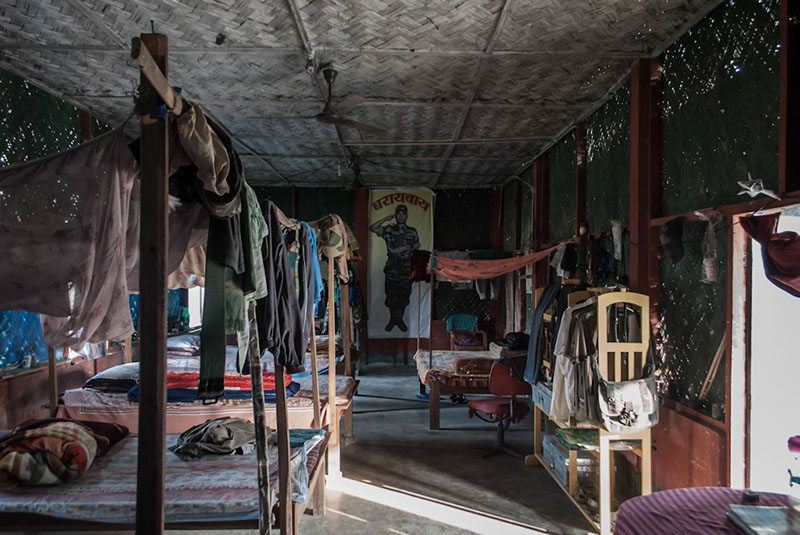Assam has been a witness to waves of migration for centuries resulting in a unique mixture of social and ethnic groups in the region. There have been many instances of friction between the local and migrant communities over land and other resources and the ethnic conflict arising out of movements for statehood, autonomy and language only added to the tensions between the communities.
The Bodo Security Force (Bd.S.F), a militant organization, came into existence under the leadership of Ranjan Daimary in 1986 with a vehement resolution to combat the domination and suppression by the Indian State and it agencies in the post-independent India. The Bd.S.F was later renamed as the National Democratic Front of Bodoland (NDFB) in 1994. While the Bodo Liberation Tiger (BLT), another armed group which demanded a separate state for the Bodos to be carved out of Assam gave up arms and joined mainstream politics later, the NDFB continued with its armed struggle for a sovereign Bodoland.
NDFB is one of the most active militant groups in Assam fighting for a separate state of Bodoland since the 80’s. The group operated out of camps in the border regions of Bhutan but was under intense fire after joint operations by the Indian and Bhutanese armies. The group had finally entered into a ceasefire agreement with the Indian government in 2005. One of the terms of the agreement was that the cadres would live in camps protected by the Indian Army and not leave the premises without prior permission.
Over the years the NDFB has been holding talks with the Centre but the process has not moved beyond any expressions and the ceasefire settlement has been infrequently extended time and again. Many of the soldiers happen to be youngsters who took to the arms in their teens and now after 8-12 years of living in the camps without any work to do, have not much hope for the future.
I had spent three days at the camp before the access was abruptly revoked. I spent much of my time talking to the soldiers and understand what they’re going through but they would not speak much. They were probably briefed not to talk much or they were plainly not interested but few of them were friendly and some insisted for an interview and some were just curious. Codes of conduct are severe, once inside the camp one cannot fall in love (though marriage is permissible), pursue education and if caught consuming any form of intoxicant they are punished.
Due to the outfit’s dormancy they have little or nothing to do during their serving period at the camp. Soldiers who have attained 29-30 years of age have to leave the camp and lead a civilian life unless they prove themselves of handling and managing capabilities. Those with proven abilities are offered commanding posts in the group. Most cadres return home to their family’s agricultural farming and the remaining few try their luck in small business ventures and with no educational provision or access to a secure future it becomes difficult to observe the whole identity of the Bodos, somehow losing their future in their present.

The NDFB Camp at Serfanguri in Kokrajhar district, Assam.

A soldier’s uniform on his bed inside the camp.

A soldiers emerges out of a room he shares with two others. The camp consists of two units- the old and the new. The new ones are built of concrete and the rooms are smaller as compared to the old camp, which is built in traditional style with bamboo and mud.

Inside the camp at Serfanguri. The camp is well-maintained and there are different duties assigned to different groups from the kitchen to keeping its surroundings clean.

26-year-old Boga Brahmo thinks of getting himself engaged in some business after his term period in the camp.

A group of soldiers enjoying a game of carom. Without few activities to engage oneself in, it does become difficult to live in the camp.

The dining area inside the camp. Soldiers are provided two meals a day, and meat almost being their daily diet. Duties for serving food to their comrades are assigned on a monthly basis.

Life is simple inside the camp.

Sanjay Basumatary has been in the camp for past 8 years.

The hall of residence. Each dormitory accommodates 10-15 soldiers. Throughout the year, a soldier is granted approximately one month of leave. Depending on the strength of soldiers inside the camp, one applies accordingly.

23-year-old Mithun Wory joined the camp in early 2009. All he dreams is of a separate state of Bodoland, he believes it will change his life forever.

Soldiers getting ready for their morning roll call. There are around 500 soldiers in the camp.

Soldiers play a game of volleyball after the evening roll call. Sports is the only activity where they indulge themselves.

Numerous graffiti cover the walls of the camp.
Bio:
Tashi Norden Lepcha is currently pursuing his Masters in Photography from National Institute of Design.
Travel and photography are two of his great passions. Understanding other cultures, meeting people from other communities and seeing the beauty and the horrid, the obvious and the hideous of the world has helped him understand and better appreciate his culture and home as well as that of the people he ever met. As the images of other photographers have inspired him to explore the world, he anticipates that his own contributions will inspire others. Tashi also plays a few chords in the guitar and has had a musical background in his career.
